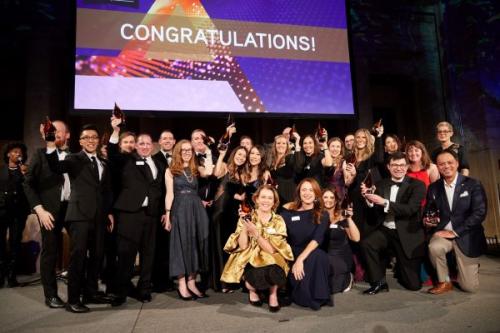Computershare CEO building brand with aggressive acquisitions
Chris Morris, CEO of Computershare, must have felt shortchanged when he arrived in London in May of this year. The Australian had scheduled a six-week stint in Computershare’s London office to coincide with summertime in the northern hemisphere. Given typically British weather, however, he faced the kind of soggy welcome tourists have come to expect from summer in the UK’s capital.
Morris has worked hard over the years he’s been in charge to ensure his distinctively no-nonsense Australian style has been imprinted on the company. He says he doesn’t have time for spin gloss or excessive business jargon. Instead he favors truth, honesty and straight talking.
His approach to management characteristically spilled over into his handling of Computershare’s own transparency efforts, making the annual meeting something of a perennial headache for legal types of a more sensitive disposition. Despite their concerns, Morris thinks investors appreciate his honesty. ‘When we had trouble over here with bad management, I got up at the annual general meeting and admitted it. It made the lawyers nervous but it was probably the best thing we ever did.’
Morris is typically pragmatic about the role of senior management; he likes contact with shareholders but understands his limitations. ‘You can’t, as a CEO, just spend your time seeing investors; you’ve got to be sensible,’ he remarks.
The company has a significant international holding but enjoys strong support from super-funds in Australia. ‘We always do investor meetings after half-yearly results, so we have to get out and visit our shareholders in other parts of the world,’ Morris adds.
Happy travelers
It sounds as if many at the company would be happy to spend more time with investors located in far-flung parts of the globe. ‘Our people are always keen to go on the road, everyone in Australia loves the chance to travel, and so it’s not hard getting employees out to see out international investors.’
As a provider of investor relations services to IROs, as well as being listed on the Australian Stock Exchange, the company enjoys a pretty unique macro-perspective on the global market. This furthers governance aims as well, in that keeping abreast of so many different regulatory boards helps inform each separate division. Perhaps because of this fact, the firm dedicates a significant amount of its resources to promoting causes it believes in.
And Computershare’s determination to improve the level of transparency relating to shareholder disclosure is something at the forefront of the minds of many corporate secretaries and governance professionals around the world. ‘We lobby continually in the UK and Australia for names on share registers. But ultimately I think things like money laundering is going to be the biggest driver to changes in transparency,’ Morris adds. ‘Also, thinking globally, the biggest issue … has to be e-communications. That’s probably the biggest change we’re seeing and something we’ve been pushing for a long time.’
Although the changes have become a reality in the US, the UK and Australia, there are still many markets where electronic shareholder communications are some way off. ‘We are currently lobbying in Hong Kong and other parts of Asia to make e-communication mandatory, and we will do the same in other countries if necessary,’ Morris says.
With the growth in the levels of international transactions, Computershare has grown exponentially and now employs more than 10,000 people across 17 countries. ‘Cross-border activity is at an all-time high and this is really affecting the way we do business,’ Morris notes.
As many multinational companies will testify, setting up shop in new markets can be tough, but Morris says there’s been a pretty positive response from both businesses and the authorities in emerging markets. ‘With overseas companies investing in Russia, the government and companies want the registrar to be professional, so we’ve had cooperation from all parties there,’ he says.
Voracious appetite
Computershare’s unusual perspective on investor relations, and its similarly unusual and sometimes risky dedication to transparency, has also been a useful tool as part of its aggressive acquisition strategy. The company has made no fewer than 50 acquisitions since 2000. The rationale has been as much about brand building as value enhancing. ‘For us it is important to be there at the start, even if there is not much money in it initially,’ Morris says.
One of the most renowned targets was Georgeson, a firm that is now well-known for its strong brand. The $186 million deal occurring in 2003 added one of the leading proxy solicitation and shareholder communications firms to the Computershare arsenal. The plan was to leverage off Georgeson’s 3,500 US clients for its core share registry operations, making a one-stop shop for investors. ‘Georgeson was probably the toughest one we’ve done. It wasn’t at all well run and we had to get rid of a lot of people,’ Morris says. ‘It was also the most international acquisition we’ve been involved in, which, added to the fact it wasn’t in the best of shape, made it pretty difficult for everyone.’
The integration involved a substantial restructuring and despite some initial reservations, has proved successful. ‘It’s now one of the best and most profitable of our businesses but a year and a half ago I wasn’t sure we’d made the right decision,’ Morris adds.
All in all the company’s somewhat bullish approach to acquisitions seems to have paid off, allowing it to increase both the depth of its businesses and the number of countries in which it operates. When asked if the mergers and acquisitions market can keep up its current frenetic pace, Morris answers, somewhat prophetically given the recent market slump: ‘Personally, I don’t think it can continue much longer. It has raised the prices of assets dramatically.’
So what is the CEO’s biggest fear? Morris offers a desire rather than a fear: ‘I just hope all these newly privatized companies are going to IPO again.’
He isn’t the only one.
Note: A version of this article appears in the September issue of our sister publication, IR magazine.








